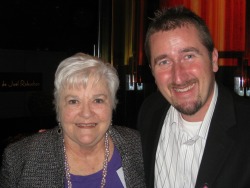“I cannot put into words what it feels like to have nurses laugh in your face and belittle you when you ask a clinical question. I cried every shift I worked for the first 6 months.”
Amanda, RN, new nurse
“Houston, we have a problem…” This famous understatement from the crew of Apollo 13 who encountered devastating complications shortly after liftoff aptly describes the problem of endemic incivility and bullying that persists in the nursing profession today.
In one survey the occupations that experienced the highest prevalence of bullying behaviors were academia, and social services, and nursing.
Have you wondered why a profession premised upon the foundation of caring and compassion towards patients struggles to demonstrate this same ethic towards colleagues in the workplace?
If you have been on the receiving end of bullying behavior, you know that it sticks to you and wounds and destroys your spirit and passion for something you once loved. Regardless of whether you are an educator, student, or practicing nurse, change begins with you.
When you experience or witness this behavior you can make a difference. Decide to embody what it means to be a member of a profession by acting like it and holding yourself and colleagues to the highest level of professional behavior.
Bullying Defined
Bullying is NOT an isolated event. A colleague who is having a bad day and is short with you is not bullying, but a consistent PATTERN of inappropriate, abusive/aggressive behavior that is done solely to diminish, devalue, or disrespect you is (1). If an encounter with a colleague left you feeling disrespected, you have likely experienced the slime of incivility.
Bullying Behaviors:
- Having your views and opinions ignored
- Being personally ignored or excluded
- Excessive monitoring of work…micromanaging
- Persistent criticism of work and effort
- Insulting/offensive remarks (2)
Consequences
Bullying is emotional abuse and NOT without consequences. It wounds the victim DEEPLY in the following ways:
- Inadequacy/feeling like a failure/self-doubt
- Anger
- Depression/decreased morale
- Post-traumatic stress disorder (PTSD)
- Leaving unit or nursing profession
- Patient safety affected because it is not “safe” to ask questions (3)
Pursue Civility
Regardless of your practice setting, focus on pursuing civility with your colleagues. Decide to take the high road by valuing the differences of others, demonstrate respect in every interaction, and identify common ground that you can build upon.
You Don’t Have to Take It!
Twisted Sister, a hair band of the 1980s, had a song that became an anthem for this decade, “We’re Not Gonna Take It!” If you did not come of age in the 1980s see what you missed (mullets and big hair!) as well as this song that can motivate and empower you if the slime of incivility has come your way!
You do have options, and the key is recognizing bullying, being PREPARED with an appropriate response, and respectfully CONFRONTING it.
The article, “Teaching Cognitive Rehearsal as a Shield for Lateral Violence: An Intervention for Newly Licensed Nurses,” is a MUST READ on this topic.
Faculty to Faculty Bullying
Do you see an elephant?
Unfortunately, there is an elephant in the room in academia. In a survey of nursing faculty around the country, 68 percent reported moderate to severe levels of FACULTY to FACULTY bullying. When mild levels were included, 96 percent of faculty have experienced or witnessed bullying first hand (4)!
Nursing education is in need of radical transformation to improve how nursing is taught. But to see this vision fully realized, incivility and bullying behind the closed doors of nursing departments also needs to come to an end.
As a new nurse educator, I had no idea how joy-stealing my journey in nursing education would soon become. As a nurse in the clinical setting for thirty years, I have experienced incivility and bullying behaviors sporadically.
But when I entered nursing education, I was unprepared for the intensity and severity of incivility that was unlike anything I experienced in the clinical setting.
These behaviors included polarizing faculty attitudes toward the department chair and eye-rolling, and denigrating each other openly in faculty staff meetings.
The Purpose of the Pit
Though I tried to keep my head low and focus on my students, the incivility came my way and experienced “withholding information,” “sabotage” that led to “setting me up to fail.” When I was not asked to return after what I thought was a successful school year, I vowed, “Never again!” to continue my career as a nurse educator. I can make more money and have less stress in clinical practice!
I thought I chose the “right” career path pursuing my passion as an educator. Making sacrifices to complete my masters in nursing education that seemed logical just a short time ago, now seemed so wrong and misguided. As I experienced this “pit”, I did not have a perspective to see that God was actually at work in the bottomless, dark pit I was in.
Who Are You?
What defines your identity and worth as a person? I made the mistake of believing that my identity and value as a person was defined by what I do. Do I have value and worth if I am unable to pursue my passion as an educator? Do I even want to go back to teaching and risk being hurt and wounded again?
As I pondered these troubling thoughts, I was reading the 23rd Psalm. It begins, “The Lord is my shepherd, I shall not want; He MAKES me LIE DOWN in green pastures (emphasis mine).
Verse 3 goes on…“He restores my soul.”
Though painful, it became clear that God was using this experience to make me lie down, SLOW down, and rest, so that RESToration could take place in my life.
Though I loved what I was doing as an educator, I had allowed the “tyranny of the urgent” (be sure to check out the link for an excellent article) to keep me from what was most important in life; my relationship with God my primary purpose and priority in my life.
Just as Joseph could say to his brothers who had thrown him into the pit; “You meant evil against me, but God meant it for good“ (Genesis 50:20), I can now look back and see the good that has come and life lessons I have learned.
I am still standing and pursuing my passion for teaching differently, by serving the needs of nurse educators. But there is more to my story. It is how God used one person to bring healing to my soul.
Healing Begins
Though I enjoy presenting at conferences, I had a cloud over me when I came to Elsevier’s Faculty Development Institute in 2013. I was deeply wounded by incivility I had recently experienced when a door to teach suddenly and painfully closed.
Patricia Benner was the keynote speaker, and I brought my well-marked copy of Educating Nurses to be signed, which she graciously did the day before.
I presented at a well-received breakout session on “Clinical Reasoning in the Clinical” that situated clinical reasoning and the recommendations from Patricia Benner and her coauthors from Educating Nurses. I finished my session, and several educators made their way up front to talk with me.
 Another educator approached from a distance and also made her way up front. Other educators who saw her coming moved out of the way to let her come to meet me. It was Dr. Patricia Benner, and she said, “We need to talk, and I would like to know if we could meet for lunch.” Of course, I said yes!
Another educator approached from a distance and also made her way up front. Other educators who saw her coming moved out of the way to let her come to meet me. It was Dr. Patricia Benner, and she said, “We need to talk, and I would like to know if we could meet for lunch.” Of course, I said yes!
During our time together, Dr. Patricia Benner encouraged and affirmed me with healing words that communicated that I had something to contribute to nursing education and needed to stay in the game.
She is one of the reasons I am still doing what I am doing today serving the needs of nurse educators through the clinical reasoning resources I have developed.
Words for the Wounded
I know that I am not alone and that you too may have experienced or are continuing to experience a disrespectful, uncivil work environment. I want to encourage you with lessons I have learned in my journey.
First, give NO ONE the power to steal your joy, as well as your purpose in life! I believe you are an educator for a reason and is not a coincidence. You are needed right where you are, so do not run. Take your stand!
Don’t Let the Villain Win!
Why does every fairy tale have a villain, an adversary who opposes the very purposes of the heroine? It is because fairy tales are true to life. Your life is a story. There is a purpose and destiny to your life that is meant to be lived out and expressed in academia.
But you, too, have a villain, an adversary who wants to take you out and keep you from your calling. In nursing and nursing education, the most common villains are the arrows and wounds that come from incivility brought through others.
If you are experiencing this in your department, seek out the support of others. You are not alone.
If there are strained relationships in your department, reflect and determine if forgiveness needs to be offered. If so, humble yourself and allow restoration of relationships to occur so personal healing can take place and transformation of your relationships can take place first, then begin to tackle your program and implement needed change.
We Need Each Other
Two people are better off than one, for they can help each other succeed. If one person falls, the other can reach out and help. But someone who falls alone is in real trouble. Ecclesiastes 4:9-10.
These words of wisdom were written by Solomon, one of the wisest men and king of ancient Israel over 2,500 years ago. We too need each other to train the next generation of professional nurses. You can’t do it alone so don’t take each other for granted!
Be more like Dr. Patricia Benner and encourage and validate what your colleagues are doing well and call out any disrespectful or uncivil behavior whenever it may occur.
What’s at Stake
If incivility continues to flourish behind the doors of nursing education, many qualified and clinically current educators will likely leave as a result.
Recognizing what is at stake, the ability to attract and retain qualified faculty to train the next generation of professional nurses, it is my hope and prayer that grace and forgiveness would flow freely in our nursing departments to bring healing to those we work with, and ultimately to our profession.
References
- Bartholomew, K., (2006), Ending nurse to nurse hostility: Why nurses eat their young and each other. Marblehead, MA: HCPro Incorporated.
- Johnson, S.J. & Rea, R.E. (2009). Workplace bullying: Concerns for nurse leaders, The Journal of Nursing Administration, 39(2), 84-90.
- Murray, J.S. (2008). No more nurse abuse, American Nurse Today, 17-19.
- Clark, C.M., Olender, L., Kenski, D., & Cardoni, C. (2013). Exploring and addressing faculty-to-faculty incivility: A national perspective and literature review, Journal of Nursing Education, 52(4), 211-218.
Useful Links
Students/Nurses
- Fact Sheet: American Nurses Association: Lateral Violence & Bullying in Nursing
- Book: Ending Nurse-to-Nurse Hostility: Why Nurses Eat Their Young and Each Other by Kathleen Bartholomew
- Book: When Nurses Hurt Nurses: Overcoming the Cycle of Nurse Bullying by Cheryl Dellaseega
Nursing Faculty
- Website: Civility Matters: Creating and sustaining communities of civility
- Article: Why civility matters by Cynthia Clark
- Book: Creating & sustaining civility in nursing education 2nd ed. by Cynthia Clark


